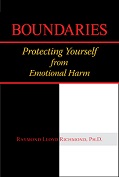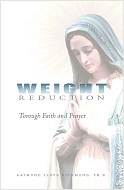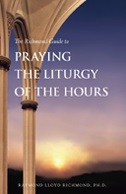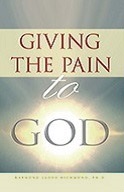|
|
|

Chastity
The body has its pleasures,
yet they are illusory and short-lived,
and they can lead you to spiritual doom;
but the joy of the spirit is real and everlasting.
 |
 |
 IN
feels good. Period. IN
feels good. Period.
Sin gives us raw physical pleasure. We are
drawn to it because it feels good. We are not bad because we are drawn to what feels
good. It’s natural to be drawn to what feels good. But holiness consists of
rejecting what feels good for what is good.
Therefore, even though sin
can be intense and intoxicating, sin is
not “bad” because someone in authority, for some arrogant and mysterious
reason, says so. Sin is not “bad” because the Catechism says so. Sin is
“bad” because it leads you away from the goal of holiness and
into the empty pleasures of merely feeling good. Sin misses the point of
life.
Regardles of its intensity of feeling,
sin defiles love. Sin is the hatred of love. Sin makes pleasure its own end, and so it
ends in failure.
Still, sin feels good—and that
points to the ultimate spiritual battle. Regardless of the throbbing intensity of
sin’s attraction, we have to struggle against its pleasures and struggle to remind
ourselves that, even though it has so much allure, sin is the hatred of love.
In regard to sexuality, God, Who is the point
of life, gave us genitals so that we could bring new life into
the world. Note that we aren’t creators; God is the Creator and we are
procreators—that is, we stand in the place of the Creator. Our genitals
therefore serve the purpose of procreation. They serve love by bringing
children into the world who will learn to love Love—God Himself—to become
love themselves.
The battle against sin can be fought only
with love for God, and chastity is one powerful
weapon in our hands.
|
Chastity is a choice
you can make now regardless of your past. Every Christian—male or female,
with heterosexual desires or homosexual desires, married or celibate, laity or
religious—is called to chastity. Chastity is not the repression of sexuality,
it is the purifying transformation of desire into
love. |
|
As the full human
response to divine love, chastity encompasses
all the psychological, social, and physical consequences of accepting that
the body is the temple of the Holy Spirit (1 Corinthians
6:19). In chastity we renounce lust; dress
modestly; engage in sexuality
only within the context of Holy Matrimony (which is not a civil right but a
sacrament given only to a properly disposed man and
woman), and within that context, engage only in sexuality that is ordered to a desire
for procreation; and distance ourselves from—or, in
scriptural language, die to—the moral impurity of the
corrupt social world in which we all live. All of this is done
so that we can serve God with pure hearts, both now and in the Kingdom of Heaven.
Chastity is not just an attitude
toward human sexuality, it is the full acceptance
of the human responsibility to the holy lifestyle
that Christ preached—and lived in His body—and that contemporary
society, in all its psychobabble about happiness, self-fulfillment, and human
rights tries its best to subvert. Chastity, then, is a way of
life—the way of life, the only lifestyle, the only
“orientation”—for anyone who would follow Christ and claim
to be Christian.
|
 This is not a command for
virgins to obey and brides to ignore, for widows and not for married women,
for monks and not for married men, or for the clergy and not for the laity.
No, the whole Church, the entire body, all the members in their distinct
and varied functions, must follow Christ. . . . They must
take up their cross by enduring in the world for Christ’s sake whatever
pain the world brings. This is not a command for
virgins to obey and brides to ignore, for widows and not for married women,
for monks and not for married men, or for the clergy and not for the laity.
No, the whole Church, the entire body, all the members in their distinct
and varied functions, must follow Christ. . . . They must
take up their cross by enduring in the world for Christ’s sake whatever
pain the world brings. |
|
|
—from a sermon
by St. Augustine, bishop
Office of Readings, Common of Holy Men |
|
And woe to the soul that spurns
chastity. Love is chaste, and to spurn chastity is to spurn love. If you spurn
love, you will find that in the end you are left
with nothing but everlasting broken emptiness.
To spurn chastity is to spurn Christ Himself, who, in His real and physical
suffering on the Cross—truly present to us in
the broken bread of the Eucharist—offers
the only means to heal our human
brokenness.
|
There is but
one price at which souls are bought, and that is
suffering united to My suffering on the cross. Pure
love understands these words; carnal love will never understand
them. |
|
|
— as told to St.
Faustina
(Diary, 324) |
|


Healing
|
Though
Demons
Gloat
|
Anger
&
Forgiveness
|
Falling
Families,
Fallen Children
|
Disasters
and
trauma
|
Psychology
from the
Heart
|
 |
 |
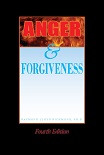 |
 |
 |
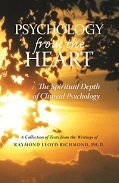 |
Psychological Healing
in the Catholic Mystic tradition |
True Christian
Identity
In Confronting
Evil |
How to Turn the
Emotional Wounds
of Daily Life Into
Psychological Growth. |
The Psychological
and
Spiritual Remedy
For Our Cultural
Disintegration |
The Struggle For
Psychological
and Spiritual
Growth |
Collected Texts
About the Spiritual Depth of
Clinical Psychology |
More information |
More information |
More information |
More information |
More information |
More information |
Desire
and
Distraction
|
Fear
|
Stopping
Smoking
|
Borderline
Personality
Disorder
|
Catholic
Compassion
|
Reverence
for the
Holy Eucharist
|
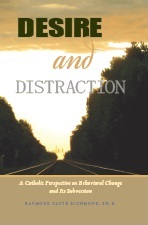 |
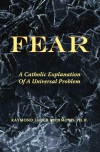 |
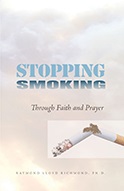 |
 |
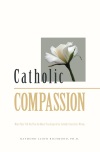 |
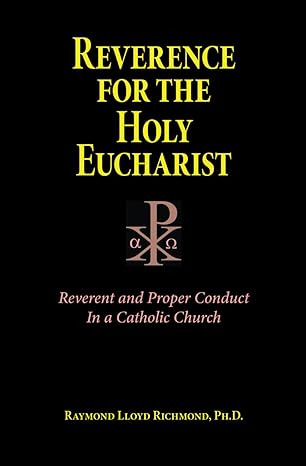 |
A Catholic Perspective
On Behavioral Change
and Its Subversion |
A Catholic Explanation
Of a Universal
Problem |
Through
Faith
and
Prayer |
Healing
the
Rage |
When They Tell You
That the Moral Teachings of the
Catholic Church
Are Wrong |
Reverent and
Proper Conduct in
a Catholic Church |
More information |
More information |
More information |
More information |
More information |
More information |
|

![]() Satan’s Bet | Outside the Box | Modesty | Catholic Therapy | Spiritual Counsels | Books | About CSF
Satan’s Bet | Outside the Box | Modesty | Catholic Therapy | Spiritual Counsels | Books | About CSF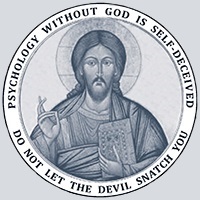

 This is not a command for
virgins to obey and brides to ignore, for widows and not for married women,
for monks and not for married men, or for the clergy and not for the laity.
No, the whole Church, the entire body, all the members in their distinct
and varied functions, must follow Christ. . . . They must
take up their cross by enduring in the world for Christ’s sake whatever
pain the world brings.
This is not a command for
virgins to obey and brides to ignore, for widows and not for married women,
for monks and not for married men, or for the clergy and not for the laity.
No, the whole Church, the entire body, all the members in their distinct
and varied functions, must follow Christ. . . . They must
take up their cross by enduring in the world for Christ’s sake whatever
pain the world brings.






